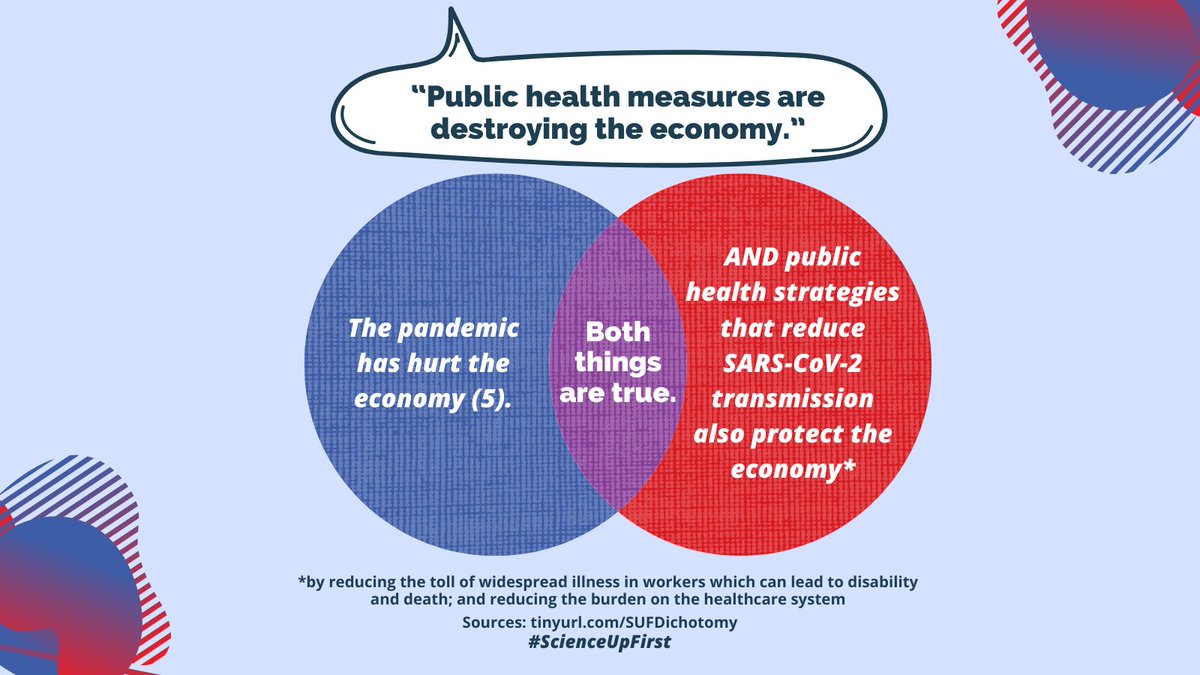
People don’t just wake up one morning convinced “globalists run the Internet.” 👁️
To get to that point, they need to travel down the rabbit hole. 🕳️
So what drives people towards conspiracy theories and extremism?
#ScienceUpFirst
🧵[1/12]
To get to that point, they need to travel down the rabbit hole. 🕳️
So what drives people towards conspiracy theories and extremism?
#ScienceUpFirst
🧵[1/12]

Feelings of isolation (1) and uncertainty due to events outside your control (2) are a recipe for radicalization. It’s no wonder the pandemic has amplified conspiracy theories. 😰
#ScienceUpFirst
🧵[2/12]
#ScienceUpFirst
🧵[2/12]
Conspiracy theories give simple and structured answers for difficult questions, and can help ease anxiety. 😮💨
People with a greater desire for “cognitive closure” (total understanding of the world) are more likely to believe conspiracy theories (9).
#ScienceUpFirst
🧵[3/12]
People with a greater desire for “cognitive closure” (total understanding of the world) are more likely to believe conspiracy theories (9).
#ScienceUpFirst
🧵[3/12]
Isolation makes a person more likely to be radicalized (8). But once someone dives into the anti-vax sphere, their relationships with family and friends can fracture further (10).
To fill that void, online anti-vax groups offer a sense of community.
#ScienceUpFirst
🧵[4/12]
To fill that void, online anti-vax groups offer a sense of community.
#ScienceUpFirst
🧵[4/12]
Mixed in with anti-vax rhetoric are posts coming from white nationalists and other extremists who are hijacking social media groups (11) and go largely unchecked (12).
#ScienceUpFirst
🧵[5/12]
#ScienceUpFirst
🧵[5/12]
Anti-vaccine sentiment can be a pipeline to more extreme conspiracies online.
Increasingly, anti-vax groups are linked with conspiracy theories like QAnon (3, 4) and far right extremism (5, 6, 7, 8).
#ScienceUpFirst
🧵[6/12]
Increasingly, anti-vax groups are linked with conspiracy theories like QAnon (3, 4) and far right extremism (5, 6, 7, 8).
#ScienceUpFirst
🧵[6/12]
So how can you help a friend or family member caught in a web of misinformation (13)? 🕸️
- Pinpoint the fear. Ask them what exactly they are concerned about. 📍
- Validate the concerns. Often it’s about something like safety or liberty. ✔️
#ScienceUpFirst
🧵[7/12]
- Pinpoint the fear. Ask them what exactly they are concerned about. 📍
- Validate the concerns. Often it’s about something like safety or liberty. ✔️
#ScienceUpFirst
🧵[7/12]
- Provide information. With their permission, you can send them some credible sources related to their concerns. 📰
You might not convince them. But let them know you are there for them (14).
#ScienceUpFirst
🧵[8/12]
You might not convince them. But let them know you are there for them (14).
#ScienceUpFirst
🧵[8/12]
Unvaccinated ≠ Anti Vaxx
People who are unvaccinated are not a homogenous group. Reasons for not yet getting vaccinated vary (e.g. work schedule, childcare, mobility) (15).
Writing off people who are unvaccinated can create further polarization.
#ScienceUpFirst
🧵[9/12]
People who are unvaccinated are not a homogenous group. Reasons for not yet getting vaccinated vary (e.g. work schedule, childcare, mobility) (15).
Writing off people who are unvaccinated can create further polarization.
#ScienceUpFirst
🧵[9/12]
It’s possible to change minds. 🤝
A survey conducted over the fall of 2020 (before vaccines were approved) found 76.9% of Canadians were willing or somewhat willing to get vaccinated (16).
But today, 84.55% over the age of 5 are fully vaxxed (17).
#ScienceUpFirst
🧵[10/12]
A survey conducted over the fall of 2020 (before vaccines were approved) found 76.9% of Canadians were willing or somewhat willing to get vaccinated (16).
But today, 84.55% over the age of 5 are fully vaxxed (17).
#ScienceUpFirst
🧵[10/12]
People are still stepping up! In the week ending Feb 20, 2022, 28,250 people in Canada got their first dose (18).
It’s never too late to seek good health information online, and to take the steps to protect yourself and those around you.
#ScienceUpFirst
🧵[11/12]
It’s never too late to seek good health information online, and to take the steps to protect yourself and those around you.
#ScienceUpFirst
🧵[11/12]
And remember, even if you fall into the rabbit hole, it’s always possible to climb out again.
Questions about conspiracy theories? Leave us a DM or comment!
Sources: tinyurl.com/SUFRabbitHole
#ScienceUpFirst
🧵[12/12]
Questions about conspiracy theories? Leave us a DM or comment!
Sources: tinyurl.com/SUFRabbitHole
#ScienceUpFirst
🧵[12/12]

• • •
Missing some Tweet in this thread? You can try to
force a refresh











